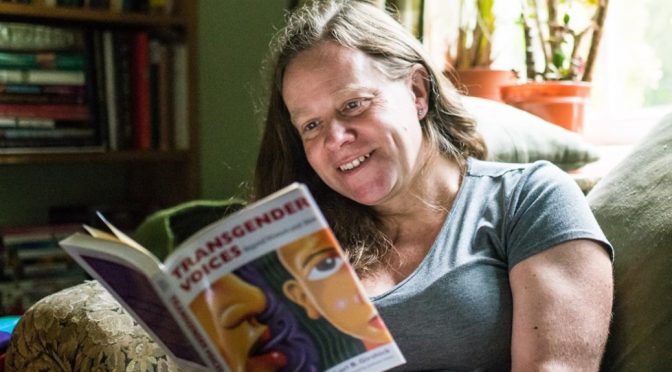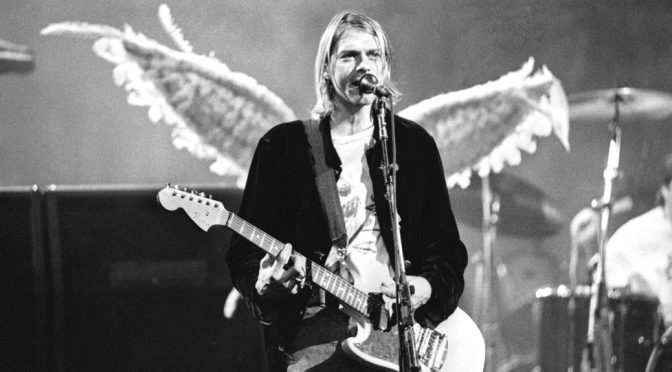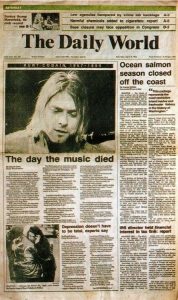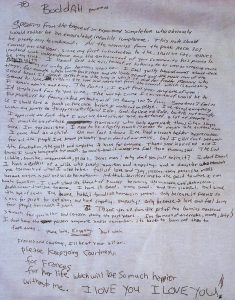Your Voice is Your Identity
Rick Riordan, the author of the Percy Jackson & the Olympians series uses this line in The Blood of Olympus. He goes on, “If you don’t use it, you’re halfway to Asphodel (Hell) already.” I have friends who’ve been scared to transition so as not to lose their voice or desperate via hormones or surgery to change their. I made the opposite decision, to keep my voice, but not other things. I had several partners who actually voiced their nonchalance with regard to my genitals, but said, “keep your voice, it’s part of who you are”. And so I did.
“Your Voice is Your Identity”
I guess I’m renowned for talking, ad nauseum sometimes. I blame being born briefly silent for 7 minutes, making up for lost time since, and my mother, from whom I inherited an insatiable desire to both read, engage, and talk, much to my father and her husband’s chagrin. Yet, he too, has a lovely voice, as an actor and when doing poetry readings.
Speech Therapy
I remember in the Christian Union at UCL, long distant left behind days, that three-quarters of the members were women, and three-quarter of them were speech therapists. I went to innumerable post-college weddings, was even the photographer, best man and groom at some, but also one funeral, of a young Uni friend – a speech therapist.

Speech therapy is available to some MTF/AMAB trans women, others augment with vocal chord tightening and Adam’s Apple shaves.
I’ve continued to go to demos, deliver speeches and interviews, or appear on the Radio – can one appear? Surely, one announces and is heard but not seen.
There lies my dilemma, I did a lot of Radio work and still do but as Katy Jon, as that saved the explanation of why Katy had a deep voice – because she/they was also Jon, but at the same time. I still get the shocked apologies when Radio presenters introduce me and are not sure of the gender to go with the voice or name.
People say it’s all about the breasts or the beard, the skirts or the trousers, the long hair and makeup or shaved hair and stubble. It is, until you open your mouth.
On aeroplane flights I’m frequently offered a “drink, madam” as they approach from behind, only for me to request a Whisky or red wine with a deep voice and them to say, “so sorry, I meant, ‘Sir'” and I reply, “No, you were right the first time”. They’re more embarrassed than me.
What irked me about the speech therapy for trans was training you to talk like a female cast member of Neighbours, allegedly, “because women’s voices go up at the end of a sentence”.
Women with deep voices
Some, maybe, but I googled singers and “actresses with deep voices” and realised there were plenty from black jazz singers to husky female actors appearing in everything from the African Queen (Katharine Hepburn) to Star Trek: Voyager (Kate Mulgrew). In fact, google that same thing now and one of the top entries is a feminisation secrets blog page about the “Top Ten Women with Deep Voices“. Maybe Google knows I’m trans.
For some women, smoking and even the menopause and the resulting decrease of Oestrogen can lower one’s voice. For others, it’s a record of their life. I remember the before and after versions of Marianne Faithful’s voice, I actually liked the latter “whisky soaked” version.
“The rough, cracked, even scarred instrument that Faithfull possesses is as responsible for her legendary status as is her sordid past. Her voice is testament to that past, a lifetime of self-destructive behavior that included years of drug abuse and heroin addiction. The smoky rasp Faithfull now wields is hardly recognizable from the gentle, lilting teenage soprano that first put her on the charts in 1964, at age 17, with her rendition of Mick Jagger and Keith Richards’ ‘As Tears Go By.'” – abc news
As a teen, suffering from an endocrine condition that meant a delayed puberty I was teased and bullied for my high pitched voice. I was still paranoid about it in my 20s, so I practised deepening it, and slowly grew a goatee beard to pass better as a man. I noticed deeper older voices got listened to, got treated with respect. Indeed, studies show this to be true.
The irony was that I didn’t feel what I was pretending to be, certainly not the stereotyped version of manhood. Nor would I end up its polar opposite either. So, I am both “my voice” and “not my voice”.
When I think of singers whose voices are part and parcel of their identity and yet they make me question and reflect on that inner and outer journey of identity, I think of Antony and the Johnsons, Lady Gaga and several others besides, “I am what I am” by Gloria Gaynor but sung by John Barrowman, or even “She’s Not There” by The Zombies. Their songs so often give voice to my inner voice or like Lola by the Kinks perpetuate the confusion of myself or others.
Charlie Peck singing “Home”
My decision to keep my voice, as an unchanged part of my identity, is mine alone, and not a comment on those who transform theirs. My reflection, on this, in fact, came about because of seeing a YouTube video of a trans guy Charlie Peck who recorded their voice before and after 9 months (apt, the period of pregnancy and giving birth) of Testosterone.
I cried at this, twice, three times, ok I’m still crying.
Contrary to this video, other parts of me changed, but I get the coming “Home” to oneself, and being both different and yet the same. This is something non-trans people may never get, but transitioning for most of us is like coming home, finding ourselves, doing what we have to do to accept ourselves, be ourselves.
Charlie writes:
“This video is a true ‘once in a lifetime’ experience. I am singing a duet with myself where one voice is recorded my first day on testosterone treatment (16th of May 2016) and the second voice 9 months later (16th of February 2017). The song is a tribute to the trans* community, but also to myself. It is a reminder that things actually do get better.”
Here’s another beautiful singer’s pre and post-T voice comparison, Nikolas Lima:
Voice has [no] Gender
The Greek musical composer Yiannis Chryssomallis, aka Yanni, said, that:
“There is no gender to my music. There’s no male or female voice, no trite lyrics or poetry. It’s much more abstract, so it lives with you longer.”
And yet, also:
“the human voice too can be the most expressive instrument known to man. There is power to it.”
“the voice is the netherworld, the darkness, where there’s nothing to hang onto. The voice comes from a part of you that just knows and expresses and is.” – Jeff Buckley
A Voice for the voiceless
I prefer to ignore the gender in my or other voices, I know trans men who haven’t taken a drop of T yet, meanwhile, I’ve never seen or heard them as anything other than male, and often their voices match that perception even without the aid of hormones. The same goes for many trans women, I don’t notice the pitch of their voice, rather I concentrate on what they have to say. That should be true for all of us.
In addition, the most powerful thing we can do with our voices is to speak up for those without one. Don’t be silent, don’t be afraid of your power, whether yours is a voice of creation or assent, let it be for good, whatever its pitch.



